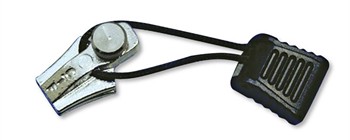Posts
What’s the difference? What’s the weakness?
/in Marketing & Sales/by Jeffrey GitomerQuestion from a fan:
Hi Jeffrey, I just purchased your new book on the 21.5 Unbreakable Laws of Selling. As usual, it’s full of amazing content. But as I read it, it generated three compelling questions I hope you can answer. Thanks, Brandon
1. What is the biggest difference between selling today and 10 years ago?
Three things have changed selling (and buying) forever – THE INTERNET, SMARTPHONES, and SOCIAL MEDIA. The Internet sells trillions annually, and it does it 24-7-365. Customers can investigate, shop price, compare prices and values, and buy with one click – anyplace in the world. Social media is the largest one-on-one sales reference on the planet, and like the Internet, it’s keeping business (and salespeople) honest. And it’s making smarter customers. Smartphones have created access. Ultimate and instant access. Apps are the new Internet. And the combination of these three elements has changed the face and manner of doing business – forever.
NOTE WELL: You can only SELL at your place – but customers can BUY anyplace in the world – any time of the day or night.
What has changed is that salespeople HAVE NOT CHANGED. No personal website, no personal brand, no social media interaction, and not taking advantage of smartphone technology.
ADVICE: Get heavily involved with the Internet. Make sure it serves your customers, not just your company. Get heavily involved in social media, and don’t just post – respond to comments, concerns, and praise. Use your smartphone to study your marketplace, transact business, and post on social media. ASK YOURSELF THIS: Is it easier to find and do business with you, or your competition? Got app? If not, invest whatever is needed in people and money to set and maintain a leadership position in all three areas.
2. Why “21.5” unbreakable laws and not more or fewer?
I started with more than 50 laws that I had written and compiled over the years, and after weeks of study and deliberation, I pared it down to 21.5 through combination and elimination. These are THE hard-and-fast laws of selling. They cannot be broken, unless you’re willing to lose sales. These laws form the foundation for your selling success and your personal success. CAUTION: They are NOT rules. They are LAWS. Rules can be bent or broken, but laws remain steadfastly the same. BIGGER CAUTION: Reading the laws once will not make you great – re-reading, studying, and implementing them day-by-day will.
3. What are the biggest mistakes salespeople make today?
I have interacted with hundreds of thousands of salespeople – that’s how my 21.5 Unbreakable Laws of Selling came about.
During my continuing journey, I have seen 3.5 flaws that are common to all weak salespeople. Not necessarily “mistakes,” like asking the wrong questions. Rather, blunders and errors in judgment and thinking that causes failure…
1. Lack of belief in what they sell, who they represent, and in themselves. Lack of belief shows up in your presentation and is evident to the prospect. ADVICE: Visit customers who LOVE your product and have been loyal to you for years. Talk to them about WHY they have belief. It will strengthen yours.
2. Lack of love of what you do. If you have “hate” or have ‘no passion’ for or about what you do, you’ll never give it full effort, and you’ll always be looking for greener pastures. “They don’t pay me enough” will ALWAYS be your mantra. Your attitude will suffer more that your sales. (If that’s possible.) ADVICE: Find a job you love before you’re fired from the one you don’t.
3. Blaming everything and everyone for what goes wrong or what didn’t happen, rather that taking responsibility for what happened, and adding personal responsibility for making things happen.Seems so obvious, yet it’s one of the biggest missing elements of sales (and society). ADVICE: Responsibility starts in the bathroom mirror in the morning. Look, smile, and commit. Next, check your language. Negative talk is usually blame talk. Avoid it. Get a partner to stop you when you start. This is one of the biggest challenges in sales and life. CAUTION: The media is blame-ridden, and the more you expose yourself to it, the more you are likely to play the game yourself. Turn off the negativity. Turn on your life.
3.5 Weak resilience. Rejection occurs 74% more than acceptance. Salespeople, especially those forced to make cold calls, weaken and bow out way too soon.
There are many more mistakes made by salespeople – too many to list here for sure – BUT many sales shortcomings can be reduced or eliminated completely, simply by taking responsibility and purchasing the 21.5 Unbreakable Laws of Selling – and putting the laws into action.
Reprinted with permission from Jeffrey H. Gitomer and Buy Gitomer.
About the Author

Leadership Inspirations – Lead, Follow, or Get Out Of The Way
/in Leadership Inspirations/by StrategyDriven
Chinese proverb
Recommended Resources – FixnZip Product Review
/in Product Reviews, Recommended Resources/by Nathan Ives
A CTF Enterprise
www.fixnzip.com
About the Product
FixnZip is an easy-to-use replacement zipper slider that fits a range of zipper sizes and works with teeth and coil zippers that are either metal or plastic. The FixnZip slider comes in three sizes: small, medium and large and two colors: nickle (silver) and graphite (dark grey). It has a patented spring plate design consisting of two slider plates, a thumbscrew, and spring; all manufactured in the United States. The slider parts are made of zinc die cast and the spring and thumbscrew of stainless steel.
FixnZip can be used on open ended (such as a packable rain jacket) or closed ended zippers (such as a suitcase) and can be started anywhere on the zipper. In the event the zipper is missing some teeth, the FixnZip glides over these areas and realigns the remaining teeth; restoring the functionality of the zipper.
Why We Recommend This Product

The FixnZip is light and compact, making it easy to take one or more of these repair kits when traveling. We found the FixnZip instructions easy to follow and the device easy-to-use. A quality product that is a must-have for business travelers, FixnZip is a StrategyDriven recommended product.
FixnZip replacement zipper sliders can be purchased by following the links below:
Nickle
- Small: FixnZip Nickel Replacement Zipper for Sewing, Small
- Medium: FixnZip Nickel Replacement Zipper for Sewing, Medium
- Large: FixnZip Nickel Replacement Zipper for Sewing, Large
Graphite
Golden Rules for Dealing with Asian Businesses, part 1 of 3
/in Customer Relationship Management, Marketing & Sales/by Kai Hammerich and Richard LewisToday, more Americans than ever are doing business in China, Japan, Korea and other parts of Asia. Below is advice explaining what Western business people need to know about national traits and customs in those countries if they want to succeed.
1. Speech is to promote harmony
In the West the primary purpose of speech is to exchange information. In Asian cultures, what is actually said is of less importance than how and when it is said and who says it. Platitudes are trotted out in profusion in Japan; flattery is also included. Westerners consider it as time wasting and pointless; in the Asian view, the longer this harmonious exchange is maintained, the more likely it is that successful business will ensue.
Hi there! This article is available for free. Login or register as a StrategyDriven Personal Business Advisor Self-Guided Client by:
Subscribing to the Self Guided Program - It's Free!
About the Authors



 Performance measures record specified outcomes achieved either at a specified time or within a defined interval and so, by their very nature, are time dependent. Consequently, a performance measure alters the behaviors of those being monitored not only in relationship to what is being monitored but also to when the outcome is being monitored.
Performance measures record specified outcomes achieved either at a specified time or within a defined interval and so, by their very nature, are time dependent. Consequently, a performance measure alters the behaviors of those being monitored not only in relationship to what is being monitored but also to when the outcome is being monitored.